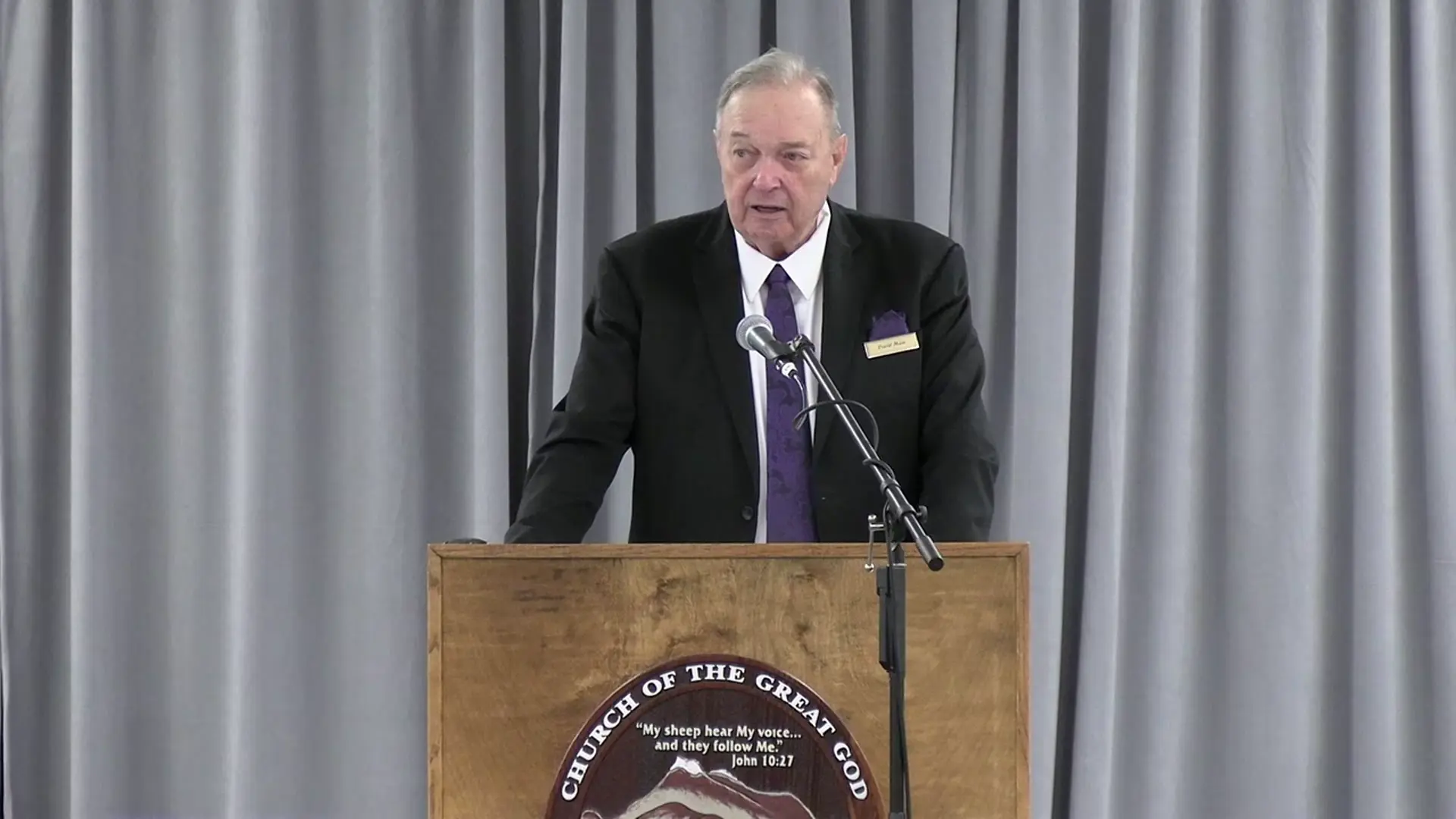Filter by Categories
God's Rest (Part 1)
Sermon by John W. RitenbaughThe concept of the Sabbath as entering God's rest is deeply woven into the spiritual creation process. In Genesis 1:31 through Genesis 2:4, the re-creation reaches its highest point with the key word "rested," which is the root of Sabbath. This indicates that God Sabbathed, finding satisfaction in a job well done, not from weariness, as He neither faints nor is weary. True rest can only occur when His will is done, whether for us, in us, or through us. God rests from His labor for and within His creation, taking joy and pleasure in His accomplishment, transforming chaos into beauty, peace, and rest, so that He might rest in us, satisfied with His creative efforts. The Sabbath, blessed and sanctified by God, serves as a memorial of His labors, set aside for His use in our lives. It is a day to cease normal customary labor and devote ourselves entirely to spiritual activities such as prayer, study, meditation, and conversation about God and His spiritual creation in us. Unlike the other six days of creation, evening is not mentioned on the Sabbath, subtly indicating a future time when the light of God's truth will never be diminished. In Hebrews 4, the Sabbath and rest involve three related issues: a future entering into a Sabbath rest picturing the fulfillment of God's purpose when He stops His labors, the literal keeping of each Sabbath as a type of that culmination, and an entering into God's favor and blessing right here and now as a foretaste of what is coming. Observing the Sabbath looks both backward to God's resting during the creation week and forward to His rest when He completes His spiritual plan. Rest does not imply idleness; the Sabbath is a day of intense spiritual activity, focusing on God's work of creating Himself in us. The Sabbath is also a time for recharging both physically and spiritually through evaluation and resolve to do better, cooperating with God to achieve greater satisfaction and spiritual well-being. This rest is not complete until God's will is fully done, producing peace and a sense of well-being. Though we may not totally reach this place until God is satisfied with His work in us, what we experience now is a small foretaste of the future rest we have entered into.
Remember the Sabbath Day
Sermonette by Hunter D. SwansonAll of God's people have at times felt overwhelmed by grief and exhaustion, needing a genuine rehabilitative rest. The Sabbath restores spiritual strength.
The 'Rest' of Hebrews 4
Feast of Tabernacles Sermon by John W. RitenbaughIf we patiently endure, trusting in God's faithfulness to bring us to completion, there will be a time when we will attain the rest we desperately yearn for.
Sabbathkeeping (Part 3)
Sermon by John W. RitenbaughThe biblical instructions for Sabbath keeping apply far more to the church than to the Israelites, who did not have the fullness of scriptural counsel.
Conversion: Turning to God
Sermon by Richard T. RitenbaughWe are like new immigrants to the Kingdom of God; we still carry the traits of our countries of origin. We must take on the characteristics of God's nation.
Sharpening Our Saws
Article by William R. GrayAmong the reasons God has provided us with the Sabbath, it as a time to sharpen our focus. Preparation is the key to getting the most out of the Sabbath.
The Fourth Commandment (Part 4)
Sermon by John W. RitenbaughFocusing on material and temporal things undermines faith. The Sabbath is holy time, created for building faith, energizing our minds for fellowship with God.

Simplifying Life (Part Five)
Feast of Tabernacles Sermon by David F. MaasThe seventh-day Sabbath is God's design for rest, sanctification, and restoration, both today and for the entire creation in the Kingdom of God.
Psalms: Book Four (Part Two)
Feast of Tabernacles Sermon by Richard T. RitenbaughThe focus of Psalms Book IV and the Summary Psalm 149 is on the work of the glorified saints in serving as mediating priests under Christ.
The Commandments (Part Seven)
Sermon/Bible Study by John W. RitenbaughThe work required on the Sabbath is to prepare for the Kingdom of God, fellowshipping with our brethren, serving where possible, and relieving burdens.
The Commandments (Part Eight)
Sermon/Bible Study by John W. RitenbaughIn our hectic culture, we commit far too little time to God, depriving ourselves of the Holy Spirit and attenuating the faith required to draw close to God.
The Commandments (Part Nine)
Sermon/Bible Study by John W. RitenbaughBenign neglect of the Sabbath covenant can incrementally lead us into idolatry. We must treat this holy time as different from the other days of the week.
Hebrews (Part Five)
Sermon/Bible Study by John W. RitenbaughThe ancient Israelites resisted the gospel, refusing to mix it with actual obedience. What they heard never became a part of their lives; Egypt never left them.
Imagining the Garden of Eden (Part Nine)
Sermon by Richard T. RitenbaughThe command not to eat of the Tree of the Knowledge of Good and Evil is universal and for all time, applying to each and every one of us.
Hebrews (Part Four)
Sermon/Bible Study by John W. RitenbaughWe must emulate Christ, who learned through suffering, preparing Himself for His role as High Priest. Giving in alienates us from the fellowship with God.